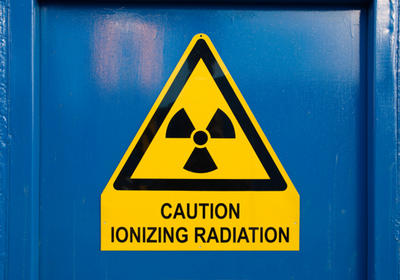Medical Tests That Can Give You Cancer
Tuesday, September 18, 2012 7:35 AM
By Starr Daubenmire
 |
One of modern medicine's most valuable tools is the X-ray. But it comes with a dangerous price: ionizing radiation, a known carcinogen.
As recently as the early 1980s, X-rays accounted for just 11 percent of radiation exposure in Americans. Natural, background radiation accounted for most of the rest.
In the last 30 years, the use of X-rays and other radiation-producing diagnostic tests have skyrocketed. CT (computed tomography) scans, also called CAT scans, have gone from 3 million in the U.S. in 1980 to 70 million in 2006. A CT scan of the chest has the radiation dose of 100 routine chest X-rays.
A Columbia University study estimates that up to 2 percent of all cancers in the U.S. are caused by CT scans.
SPECIAL: This Small Group of Doctors is Quietly Curing Cancer Find Out How
Even so, a single CT scan is not likely to do much harm. The problem is that the effects are cumulative. A lifetime of dental X-rays, mammograms, and various types of scans adds up. To make matters worse, no one is keeping track of how many scans and X-rays you are getting.
Too Many Scans
Doctors order scans for information and convenience, sometimes whether they're needed or not. One teen in New Hampshire was about to get a CT scan to check for kidney stones until the radiologist, Dr. Steven Birnbaum, discovered he'd had 14 of these super X-rays already. Alarmed, Dr. Birnbaum asked both hospitals where he works to watch for patients who had dangerous numbers of CT scans. They found 50 such people. One woman had gotten an incredible 31 abdominal scans, putting her at significant risk for cancer.
Studies show that at least 25 percent of all radiation-producing scans are unnecessary. But doctors often feel pressure from the patient to "do something" or to just "rule things out" to avoid a malpractice suit. Sometimes the doctor may not know that another doctor has ordered the same test.
Dr. Birnbaum is not opposed to CT scans, calling them a "superb diagnostic tool." The problem is, it's so good that it is being used more often when other tests would work just fine, he says.
He warns that there is "an alarming lack of awareness on the part of both referring clinicians and radiologists regarding the CT radiation issue." He cites a Yale University study that showed that only 9 percent of ER physicians and 3 percent of patients were aware of the risk of medical test radiation.
Protect Yourself
Heres what you can do to minimize your exposure to cancer-causing radiation.
For all scans and X-rays, ask:
Is this is a routine "screening" or is it necessary because a problem is suspected?
Is there an alternative test that does not use radiation, like ultrasound or MRI?
How many scans will be done and how can the number be limited?
For dental X-rays, ask:
Which type of X-ray film is used? D-speed film is slow and delivers 60 percent more radiation that faster E- or F-speed film.
For mammograms, ask:
How often is testing necessary if no breast cancer runs in my family?
Is digital mammography available? It provides a superior picture at half the radiation. If a 3-D mammogram is offered, ask why it is necessary. It has twice the dose of radiation as a regular mammogram.
Finally, keep your own record of any scans or X-rays you receive. Make a note of the test, the date, and what was being tested. If your doctor orders any of the same tests you've already had, see if you can have an alternative test that doesn't use radiation. Ask for previous scans to be forwarded to your current doctor so that tests don't have to be repeated.
SPECIAL: How One Deck of Cards Has Shown to Improve Memory
© 2012 Newsmax. All rights reserved.